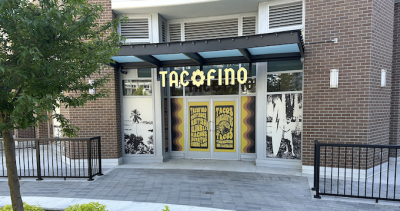The politics of Christy Clark's new tax on foreign buyers of Metro Vancouver housing
Under former premier Gordon Campbell, the B.C. Liberals tried to brand themselves as sound managers of the B.C. economy.
They were pro-trade, pro-Olympics, pro-foreign investment, and pro-immigration. Campbell held the line on the minimum wage and tried to harmonize federal and provincial sales taxes, much to the delight of his corporate supporters.
The party's economic playbook was mostly written inside the Fraser Institute, though Campbell held off on some of the think tank's more radical ideas, such as bringing in more far-reaching privatization of schools.
While there was no shortage of critics, these policies convinced enough British Columbians that Campbell's B.C. Liberals deserved to be reelected three times.
Campbell's successor, Christy Clark, has mostly kept to the script by balancing budgets and being tough on public-sector unions. But she hasn't been nearly as reliable in sticking to right-wing economic orthodoxy in other areas.
Shortly after becoming premier, Clark jacked up the minimum wage. She raised corporate taxes slightly. She imposed a short-term surtax on high-income earners. All of these are anathema to the Fraser Institute's market fundamentalists.
More recently, her government agreed to changes to improve the Canada Pension Plan, which upset the Canadian Federation of Independent Business.
And she infuriated many in the development business by imposing a 15 percent tax on foreign purchases of residential real estate in the Lower Mainland.
It's resulted in a backlash from those who favour free trade and foreign investment—i.e. traditional B.C. Liberal supporters. They believe that foreign dollars coming into the province are a good thing, which ultimately lead to more consumer spending, job growth, and tax revenue.
In their eyes, the premier has gone rogue less than a year before the next provincial election.
Clark does what it takes to win
So what are the political implications of the new foreign-buyers tax?
I would argue that this tax has actually strengthened Clark's position.
It has taken away the B.C. NDP's key plank in the next election campaign. (Clark submarined her opponents in a similar fashion in 2013.)
In the eyes of the media and the public, it appears as though Clark has stood up to the real-estate developers, who are never going to win a popularity contest.
The premier has also reduced public perceptions that she's a sock puppet for big business. That's always been the B.C. Liberals' Achilles heel and the primary reason that Gordon Campbell lost the 1996 election.
Moreover, there's not nearly enough time before the next election for Clark to be toppled by dissidents within her party. And the B.C. Conservatives have probably never been weaker, so there's no chance of her having to fend of an attack from the right in 2017.
Premier holds all the cards
Some B.C. Liberal members will privately grumble. A few might go public and say they're quitting the party. But this tax wouldn't have been implemented without the support of the premier's three closest right-wing henchmen in cabinet: Mike de Jong, Rich Coleman, and Peter Fassbender. With this action, they've demonstrated that they care a great deal more about their re-election chances than the balance sheets of companies controlled by the Cressey, De Cotiis, Aquilini, Wall, or Bosa families.
The B.C. Liberals needed real-estate developers' money to win the 2013 election. That's because some corporate and liquor-industry folks mistakenly concluded the NDP had it in the bag and didn't cough up as much money as in the past.
But next time around, the B.C. Liberal fundraisers can chase other sources, such as the billionaire grocery barons, who stand to make oodles of money from provincial liquor reforms. Mining and forest company executives can be persuaded to fork over large donations if they're convinced that the NDP will rewrite the Labour Code to favour the unions. Those who will profit from a new and unnecessary $3.5-billion bridge over the Fraser River will also be ready to give.
There will be no shortage of money to re-elect Clark and her cronies next year. This will be true even without nearly as much money coming from the real-estate sector.
The NDP is going to have a difficult time remaining competitive on the financial front.
Clark's critics are probably correct when they say the foreign-buyers tax is offside with the North American Free Trade Agreement and the Canadian Charter of Rights and Freedoms. But any challenges won't be resolved until after Election Day, given the glacial pace of legal proceedings. This will leave Clark in the clear to figure out a new strategy to win in 2021.
The reality is that Clark is the new W.A.C. Bennett, who governed the province from 1952 to 1972.
Bennett's Social Credit government was famous for his political zig-zags, which included nationalizing electricity production and ferry service. This sometimes alienated downtown Vancouver business executives.
Similarly, Clark isn't afraid to bloody a few noses of her traditional supporters if it's going to keep her in power. In fact, it's one of the secrets to her success.















Comments